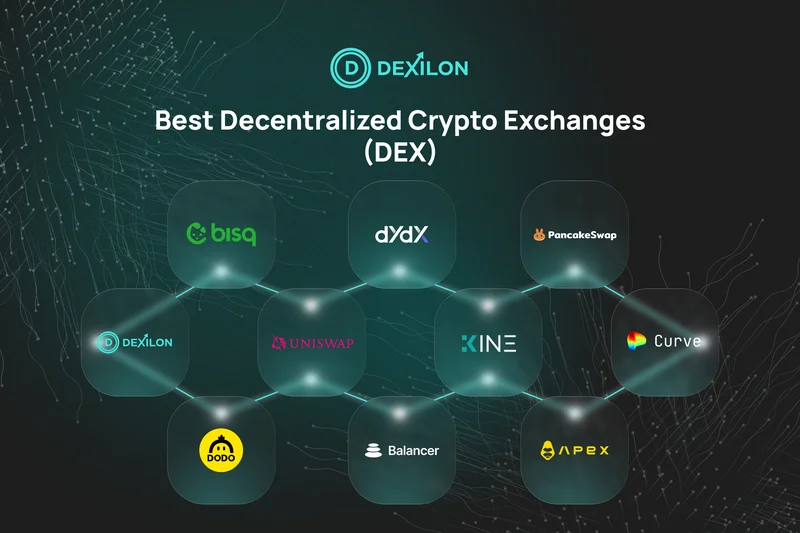Binance: A Data-Driven Look at the Best Crypto Exchanges
The surface-level narrative is almost seductively simple: crypto is back. The top ten exchanges are collectively advertising over 1,600 open roles, a figure that screams bullish exuberance. Recruiters are buzzing, predicting the next two months will be “absolutely massive.” Bitcoin and Ethereum are charting new highs, fueled by a seemingly friendlier political climate in Washington. It’s the kind of unambiguous, positive data set that makes for easy headlines.
But when you look closer, the numbers don’t tell a story of uniform growth. They reveal a fracture, a deep and widening split in the industry’s strategic direction. This isn’t one hiring spree; it’s at least two, driven by fundamentally different pressures. On one side, you have global behemoths like OKX (a staggering 440 open roles) and Binance (303 roles) staffing up for a worldwide land grab. On the other, you have the US-based players, whose recruitment feels less like expansion and more like fortification. The discrepancy between the global boom and the localized American reality is where the real story lies.
The Anatomy of Ambition
Let’s dissect the numbers. The sheer scale is undeniable. OKX, Gate, and Binance are collectively seeking to fill over 900 positions. A spokesperson for Binance framed their strategy as "quality over quantity," a classic piece of corporate messaging designed to signal strategic precision rather than frantic expansion. They want "selective, high-bar hires" to "raise our talent density." This language suggests a move beyond just scaling operations; it points toward a sophisticated arms race for engineering and product talent to build the next generation of trading tools and platforms for a global audience.
Similarly, KuCoin’s head of HR, Nancy Cheung, explicitly states their new recruitment plan is focused on "compliance, business development, and other key areas" to address "evolving global regulatory requirements." This is a critical tell. They aren't just hiring developers to list more tokens. They are hiring specialists to navigate a complex and often hostile patchwork of international rules. This isn't the Wild West hiring of 2021, where exchanges simply needed more bodies to handle surging ticket volumes. This is calculated, strategic hiring aimed at building sustainable, defensible businesses.
The global exchanges are playing a game of massive scale. They are building sprawling ecosystems that cater to every type of user, from those looking to buy XRP on Binance.com to sophisticated institutions that demand high liquidity crypto exchanges. Their hiring reflects this ambition. But this global picture becomes distorted, almost inverted, when you focus the lens on the United States.

The Great American Decoupling
Here, the data presents a jarring contradiction. While its global parent company projects strength, Binance.US is a case study in market collapse. Its share of US dollar-denominated exchange volume has fallen from around 10% to just 0.20%. Let me rephrase that for clarity. Its market share didn't just decline; it was effectively erased, falling by about 98%—to be more exact, a 98-point drop from a 10% share to 0.2%. This is the kind of catastrophic failure that is rarely survivable.
The exchange is now trying to lure users back by slashing fees, offering 0% maker fees and negligible taker fees. This is a classic move by a company with its back against the wall, attempting to compete on the one variable it can still control: price. But the problem wasn't price. The collapse was a direct result of the SEC lawsuit in June 2023 and the subsequent suspension of its US dollar rails (a crippling blow for any domestic exchange). The platform became a crypto-only island, and users fled.
I've looked at hundreds of corporate turnarounds and market share battles, and this particular situation is unusual. The damage to Binance.US was self-inflicted at a corporate level, stemming from regulatory failures that severed its connection to the traditional financial system. Restoring dollar access is a necessary first step, but it doesn't undo the profound loss of trust. Can you really win back customers who left because they feared their assets were stuck on an isolated platform, simply by offering a slightly cheaper trade? The data so far suggests the answer is a resounding no.
This is the context that reshapes our understanding of the broader market. While some exchanges are hiring for global dominance, the most successful US players—like Coinbase and Kraken—are hiring to solidify their moats. Their value proposition isn't being the cheapest or having the most tokens. As analysis of the Best Crypto Exchanges in 2025 shows, the winners in regulated markets are celebrated for security, compliance, and reliability. Kraken’s reputation is built on its impeccable security history. Coinbase built its empire on being the beginner-friendly, regulated front door to crypto. Their hiring of engineers and AI leads isn't just for growth; it's to deepen their competitive advantage in a market where the rules of the game have fundamentally changed.
The crypto market is like an organism adapting to two entirely different climates simultaneously. In the global ecosystem, speed, scale, and variety are the keys to survival. Exchanges are hiring engineers and product managers to build faster, bigger, and more complex platforms. But in the harsh, regulated climate of the United States, the key traits are armor and resilience. Here, the most valuable new hires might not be developers, but the lawyers and compliance officers who can keep the company out of a courtroom.
The Real Signal in the Noise
Let's be clear. The hiring numbers are not a simple indicator of a bull market. They are a map of the industry's anxieties and ambitions. The data reveals a clear bifurcation. Global-first exchanges are in an arms race for talent to capture the explosive growth in Asia, South America, and Africa. They are building for a world with fewer regulatory guardrails. In contrast, the US market has become a compliance battlefield. The spectacular implosion of Binance.US serves as a chilling warning to everyone: in the United States, market access is not a given. It is a privilege granted by regulators, and it can be revoked. The hiring spree, then, is not one story, but two. One is a story of boundless, global ambition. The other is a story of survival in the world's most lucrative, and most heavily scrutinized, market.
-

Warren Buffett's OXY Stock Play: The Latest Drama, Buffett's Angle, and Why You Shouldn't Believe the Hype
Solet'sgetthisstraight.Occide...
-

The Great Up-Leveling: What's Happening Now and How We Step Up
Haveyoueverfeltlikeyou'redri...
-

The Future of Auto Parts: How to Find Any Part Instantly and What Comes Next
Walkintoany`autoparts`store—a...
-

Applied Digital (APLD) Stock: Analyzing the Surge, Analyst Targets, and Its Real Valuation
AppliedDigital'sParabolicRise:...
-

Analyzing Robinhood: What the New Gold Card Means for its 2025 Stock Price
Robinhood's$123BillionBet:IsT...
- Search
- Recently Published
-
- Why Crypto Market Volatility is a Hidden Gift (r/Crypto)
- DeFi Post-Crash: Why Investor Trends Don't Add Up (Rektrospective Realness)
- Why Crypto's Recovery is a Lie. (- Hot Takes)
- Crypto's Future: Why Today's Challenges Spark Genius. (- Thread)
- Bitcoin's Volatility: Our Future Premium, Beyond VIX - Buckle Up, Buttercups!
- Tariffs Broke It. AI's Supposedly Fixing It. - Tech to the Rescue
- Crypto ETFs Tanked 80%: Retail Traders, You Got Played. - Ouch, Reddit!
- DeFi Token Performance Post-October Crash: what's really happening and who's left holding the bag
- Decentralized Finance: What it is, and why the 'decentralized' part is a joke.
- DeFi Token Performance & Investor Trends Post-October Crash: what they won't tell you about investors and the bleak 2025 ahead
- Tag list
-
- Blockchain (11)
- Decentralization (5)
- Smart Contracts (4)
- Cryptocurrency (26)
- DeFi (5)
- Bitcoin (31)
- Trump (5)
- Ethereum (8)
- Pudgy Penguins (6)
- NFT (5)
- Solana (5)
- cryptocurrency (6)
- bitcoin (7)
- Plasma (5)
- Zcash (12)
- Aster (10)
- nbis stock (5)
- iren stock (5)
- crypto (7)
- ZKsync (5)
- irs stimulus checks 2025 (6)
- pi (6)
- hims stock (4)
- kimberly clark (5)
- uae (5)
